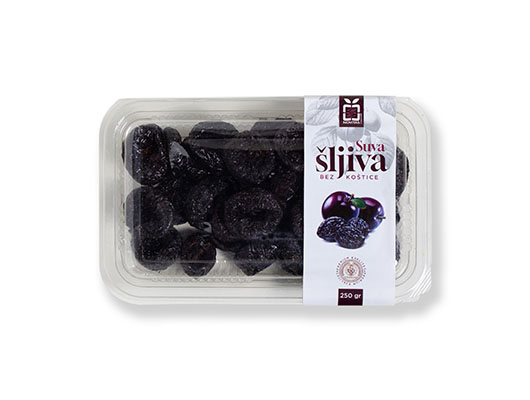Prunes are a rich source of vitamins B, C, K, and A, minerals potassium, magnesium, iron, zinc, calcium, sodium, and phosphorus, as well as plant fiber. Prunes contain sorbitol and fructose, which are natural sweeteners that have a positive effect on reducing and regulating blood sugar levels, so consuming this food reduces the risk of diabetes.
The use of prunes in a diet has a preventive effect on the occurrence of dry eyes, night blindness, and other eye diseases. At the same time, prunes help preserve retinal tissue and protect the eyes from the harmful effects of UV radiation.
Daily consumption of three to four prunes contributes to the neutralization of free radicals that adversely affect memory, and regular consumption increases brain functions, concentration, and learning and has a preventive effect on diseases such as Alzheimer’s and Parkinson’s disease, maintenance of bone density and health and prevention of osteoporosis, especially in women in menopause. The consumption of prunes contributes to the reduction of wrinkles and other signs of aging, skin damage, and hair health.
There are about 268 calories in 100 g of prunes.



